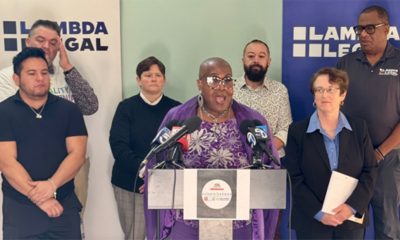Alabama
Alabama House approves expansion of state’s ‘Don’t Say Gay’ law
The bill would extend a ban on discussions of sexual orientation and gender identity from fifth grade to eighth grade
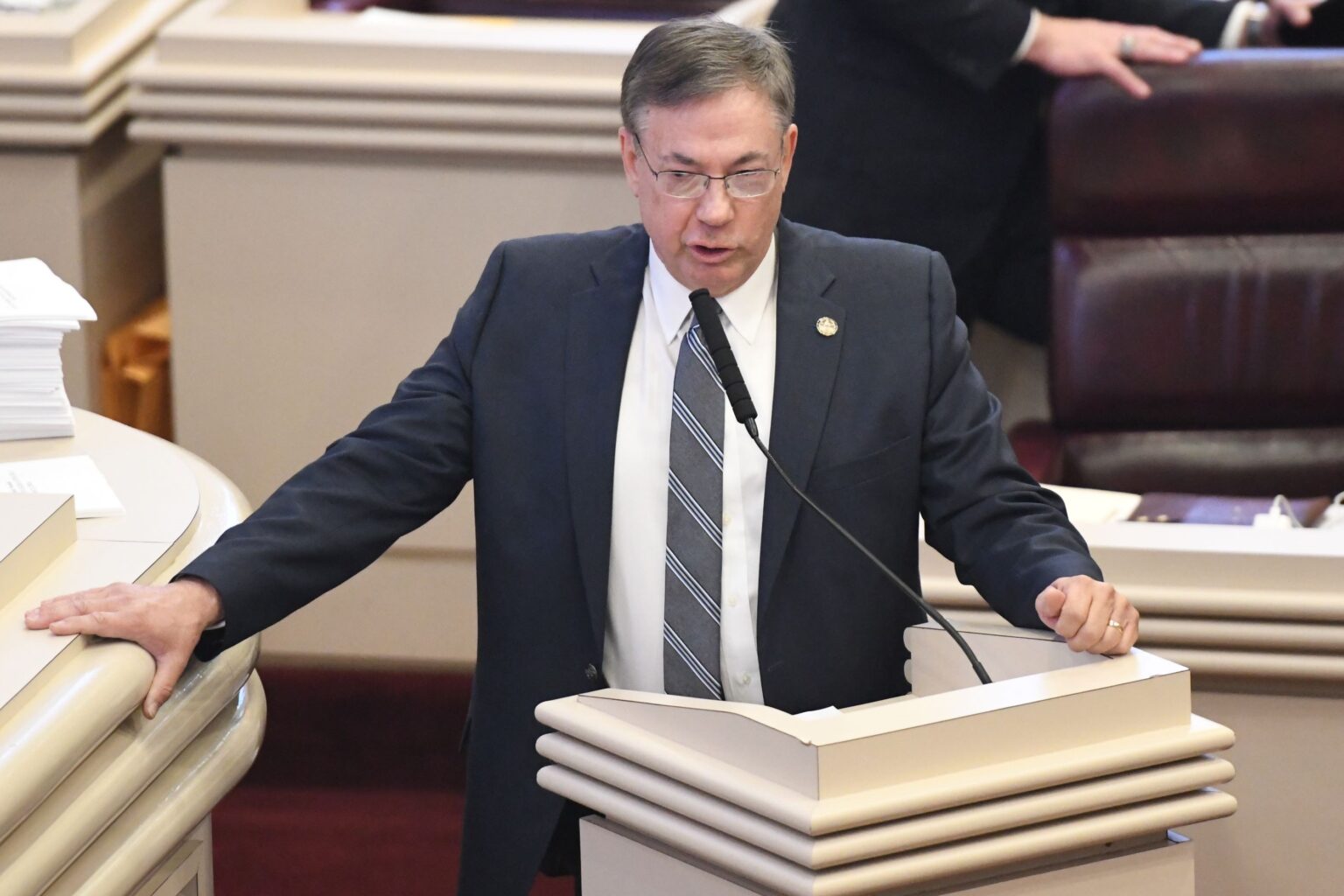
By Alander Rocha | MONTGOMERY, Ala. – The Alabama House of Representatives Tuesday approved a major expansion of the state’s “Don’t Say Gay” law after a two-hour debate.
HB 130, sponsored by Rep. Mack Butler, R-Rainbow City, would expand the limitations on teachers addressing sexual orientation and gender identity, currently banned in kindergarten through fifth grade instruction, to kindergarten through eighth grade. The bill would also limit pride flags in the classroom.
“We’ve had a few teachers go rogue, and you’d be appalled at some of the things that are being taught. You’d be appalled at some of the things right now that you’re seeing on Chromebooks,” Butler said.
The House approved the measure on a 74-25 vote.
The bill would have previously expanded the ban through 12th grade, but Rep. Barbara Drummond, D-Mobile, offered an amendment to limit the ban on sexual orientation and gender identity instruction to the eighth grade.
Butler said that was a friendly amendment supported by the Alabama State Department of Education and thanked Drummond for bringing it.
“I’m trying to put lipstick on something that I think is going to be scarring our kids,” Drummond said.
Democrats said the bill could have unintended consequences, especially as it related to children’s mental health.
Rep. Marilyn Lands, D-Huntsville, said that in her background as a counselor, she’s worked with LGBTQ+ youth that have been ostracized and bullied for of their identity.
Lands named Nigel Shelby, a 15-year-old from Huntsville who died by suicide because of bullying. She said to the body that each legislator “knows people that have been personally affected by this kind of cruelty.”
Several Democrats expressed concerns the bill could contribute to suicide rates. Asked by Rep. Phillip Ensler, D-Montgomery, to respond, Butler said he didn’t believe that would be the case “at all.”
“You still would be able to go to your teacher and talk to your teacher. You wouldn’t be able to raise your hand in class and have an open discussion about what you’re going through, which I doubt is what would happen anyway,” Butler said.
Ensler said he was missing the point. He said that what children will take away from the legislation is that the Legislature is homophobic. He said anytime lessons on identity are prohibited, such as discussion on religion and ethnicity, it makes people feel like they don’t matter and are not seen as equal.
“That is so disturbing, and I just cannot believe that we’re going to potentially now pass something any moment here that could lead to a child — a child — taking his or her own life because of something that we’re going to do here today,” Ensler said.
Other Democrats questioned which rainbow flag the legislation would outlaw.
Rep. Neil Rafferty, D-Birmingham, asked whether the bill would be banning the traditional rainbow flag or the solidarity flag, also known as the progress flag. There are at least 25 pride flags, according to the Human Rights Campaign.
“At what point would you know that you’re coming upon another insignia or symbol that would be showing a student that might be struggling, hurting or are really trying to just make the best of what they can and talk to a teacher?” Rafferty asked.
He offered an amendment that would instead prohibit a teacher from having discussions intended to change a student’s sexual orientation or gender identity.
“Very simple. It changes that from regarding to getting to really what the intent of this bill is, and that is to protect children,” Rafferty said.
The amendment was defeated on a 70-27 vote.
Rep. Patrick Sellers, D-Birmingham, said that the issue was not in school, but at home and social media. He said the body was trying to “legislate morality within the home.”
“I have a little pause because I think we’re trying to do something that we cannot do,” Sellers said.
He added that teachers don’t have the time to teach material outside of the school curriculum.
“Their time is so scheduled, along with dealing with all that they deal with, especially with discipline issues that they deal with within the school system, they don’t have time to teach what I think what you’re suggesting that has been taught,” Sellers said.
Republicans spoke in support of the bill, saying that teachers need to focus on teaching the subject they are assigned.
Rep. Ernie Yarbrough, R-Trinity, said that it is “not the job of public education to sexualize our kids.” He said it was “disingenuous” to say it’s a “ban on teaching historical facts.”
“The sooner we realize that teachers need to focus on teaching, reading, writing and arithmetic, and leaving the purity and the minds, in regard to sexual knowledge, to the parents of our families, the better off our country will be,” Yarbrough said.
The bill goes to the Senate for consideration.
*****************************************************************************************

Alander Rocha is a journalist based in Montgomery, and he reports on government, policy and healthcare. He previously worked for KFF Health News and the Red & Black, Georgia’s student newspaper. He is a Tulane and Georgia alumnus with a two-year stint in the U.S. Peace Corps.
*****************************************************************************************
The preceding article was previously published by the Alabama Reflector and is republished with permission.
The Alabama Reflector is an independent, nonprofit news outlet dedicated to covering state government and politics in the state of Alabama. Through daily coverage and investigative journalism, The Reflector covers decision makers in Montgomery; the issues affecting Alabamians, and potential ways to move our state forward.
We’re part of States Newsroom, the nation’s largest state-focused nonprofit news organization.
Alabama
New policies tie Alabama library funding to LGBTQ book restrictions
A former employee of the Autauga-Prattville Public Library said the guidelines allow the APLS to “basically act like Big Brother”

By Ralph Chapoco | MONTGOMERY, Ala. – Libraries that do not restrict access to materials deemed sexually inappropriate by the Alabama Public Library Service Board could lose state funding under rules adopted by the APLS Board on Thursday.
The changes, recommended by Gov. Kay Ivey but pushed considerably further by a board member who also chairs the Alabama Republican Party, come amid divisive battles over content and leadership in libraries around the state, often over books with LGBTQ+ themes or characters.
“I think the important thing here, and one of my priorities from the beginning, is that we protect children in the state of Alabama,” said John Wahl, the chair of the Alabama Republican Party and a member of the board who led the push for the changes. “No one should want a child to stumble across sexually explicit material in the children’s section of the libraries.”
Opponents say the new rules amount to censorship and that the language is too vague to determine what materials fall under the ban.
“The policies approved today by the state Public Library Service are a sequel that no one asked for,” said Read Freely Alabama, a group originally organized to oppose restrictive circulation policies in Prattville. “They are virtually identical to the harmful censorship policies that Prattville’s extremist-stacked library board imposed earlier this year on families who rely on the community’s public libraries.”
Under the new rules, libraries must develop a materials selection policy, addressing how minors “are safeguarded from sexually explicit material deemed inappropriate for children or youth.” They must have a policy outlining where books will be located or relocated if they are “sexually explicit or other material deemed inappropriate for children or youth.”
Libraries must also develop policies for obtaining advance approval for placing such materials in displays targeted to children. The rules leave it unclear who would approve the display materials. They must also have stated guidelines that ensure sections for children do not have materials that are obscene, sexually explicit or believed to be inappropriate.
Local policies must also bar the purchase of such materials for the collection and state that minors younger than 18 years old must have parental approval before borrowing materials designated for the adult section.
APLS is responsible for distributing funding allocated to libraries by the state. Ivey sent a letter to APLS Director Nancy Pack last fall requesting that the organization condition library funding on them adopting “sensible” policies to allow parents to better supervise their children while visiting a library.
She also wanted libraries to affirm that they will respond to parents’ concerns regarding materials they believe are sexually explicit or inappropriate on library shelves. Ivey also wanted money allocated to the American Library Association to be subject to approval by a “relevant governing authority.”
The changes adopted Thursday by the APLS Board went even further and included several proposals that Wahl believed were necessary to mitigate confusion by the public, including the selection criteria for minors that should exclude sexually explicit materials.
Right-wing groups have been targeting content in libraries, particularly books reflecting the experiences of LGBTQ+ people. The battle over content at the Autauga-Prattville Library began last year when a parent complained that a book contained inclusive pronouns.
Critics say the restrictions reflect an attitude that the existence of LGBTQ+ people is in itself obscene. Lacie Sutherland, a former employee of the Autauga-Prattville Public Library who attended Thursday’s meeting, said the guidelines allow the APLS to “basically act like Big Brother.”
“Just because you think talking about LGBTQ+ plus books is inappropriate doesn’t mean they are,” she said in an interview following the meeting. “You just have a very disgusting viewpoint about the existence of human beings.”
Ivey’s recommended changes to the administrative code sparked a public input process. APLS solicited feedback from the public for several months since that October letter from Ivey was received.
Outside groups suggested their own changes. The Alabama Library Association proposed a code that would direct libraries to adopt policies to deal with patrons and children who were unsupervised by adults, the location of materials as well as establish a display policy. The Eagle Forum, a right-wing organization, wanted further restrictions beyond what Ivey had suggested.
APLS hosted a public hearing April 30 where more than 100 people spoke, most in opposition to the rules. Another 6,000 letters were submitted. APLS said about 1,600 of them favored the changes recommended by the Alabama Library Association while another 2,179 aligned with the changes submitted by Eagle Forum. The rest were a smattering of recommendations.
“Everyone is clearly very sincere in their views,” said Ronald Snider, the chair of the APLS Board. “We don’t question the sincerity of what their positions are. I have said this before, all this dissension has hurt the libraries of this state generally, as evidenced by the cut in our funding.”
The APLS has a total budget of about $15 million in the Education Trust Fund budget, which passed the Legislature earlier this month. Most of that funding goes to outside programs. About $4.12 million goes to its operations. For this year, that figure is roughly $3.77 million, almost 9% less.
The Alabama Legislature cut $351,000 (9%) from the APLS’ 2025 operating budget, bringing it to roughly $3.77 million. The House of Representatives originally cut the agency’s budget by $701,000, but the Senate reduced the reduction by half.
House Ways and Means Education Committee Chair Danny Garrett, R-Trussville, who oversaw the budget, said in April the cuts were not punitive and that the money would be allocated to Dolly Parton’s Imagination Library and Better Basics, a Birmingham-based nonprofit that assists children with reading and math skills.
The allocation for the Imagination Library, under the Department of Early Childhood Education, increased by $250,000 in the final version of the ETF. Better Basics received $500,000.
The day began with a subcommittee meeting led by Wahl who introduced the proposed changes.
“It is time that we make sure Alabama libraries are safe for children in their children’s sections,” Wahl said. “I think we accomplished that today.”
Snider, who voted against the proposed amendments, abstained on a motion to change the administrative code. He noted that the Autauga-Prattville Library faced a lawsuit over restrictive policies it adopted earlier this year.
“We all are aware that the Prattville Library is now in litigation in federal court over the proposals they adopted that are substantially similar to what you have suggested,” Snider said to another board member, Amy Minton. “I would hate for the agency itself to be involved in litigation with respect to that.”
******************************************************************************************

Ralph Chapoco covers state politics as a senior reporter for States Newsroom. His main responsibility is the criminal justice system in Alabama.
******************************************************************************************
The preceding article was previously published by the Alabama Reflector and is republished with permission.
The Alabama Reflector is an independent, nonprofit news outlet dedicated to covering state government and politics in the state of Alabama. Through daily coverage and investigative journalism, The Reflector covers decision makers in Montgomery; the issues affecting Alabamians, and potential ways to move our state forward.
We’re part of States Newsroom, the nation’s largest state-focused nonprofit news organization.
Alabama
Alabama legislative session ends, ‘Don’t Say Gay’ expansion dies
“Don’t Say Gay” laws had spread around conservative states, though they have also brought litigation- Florida settled a lawsuit over its
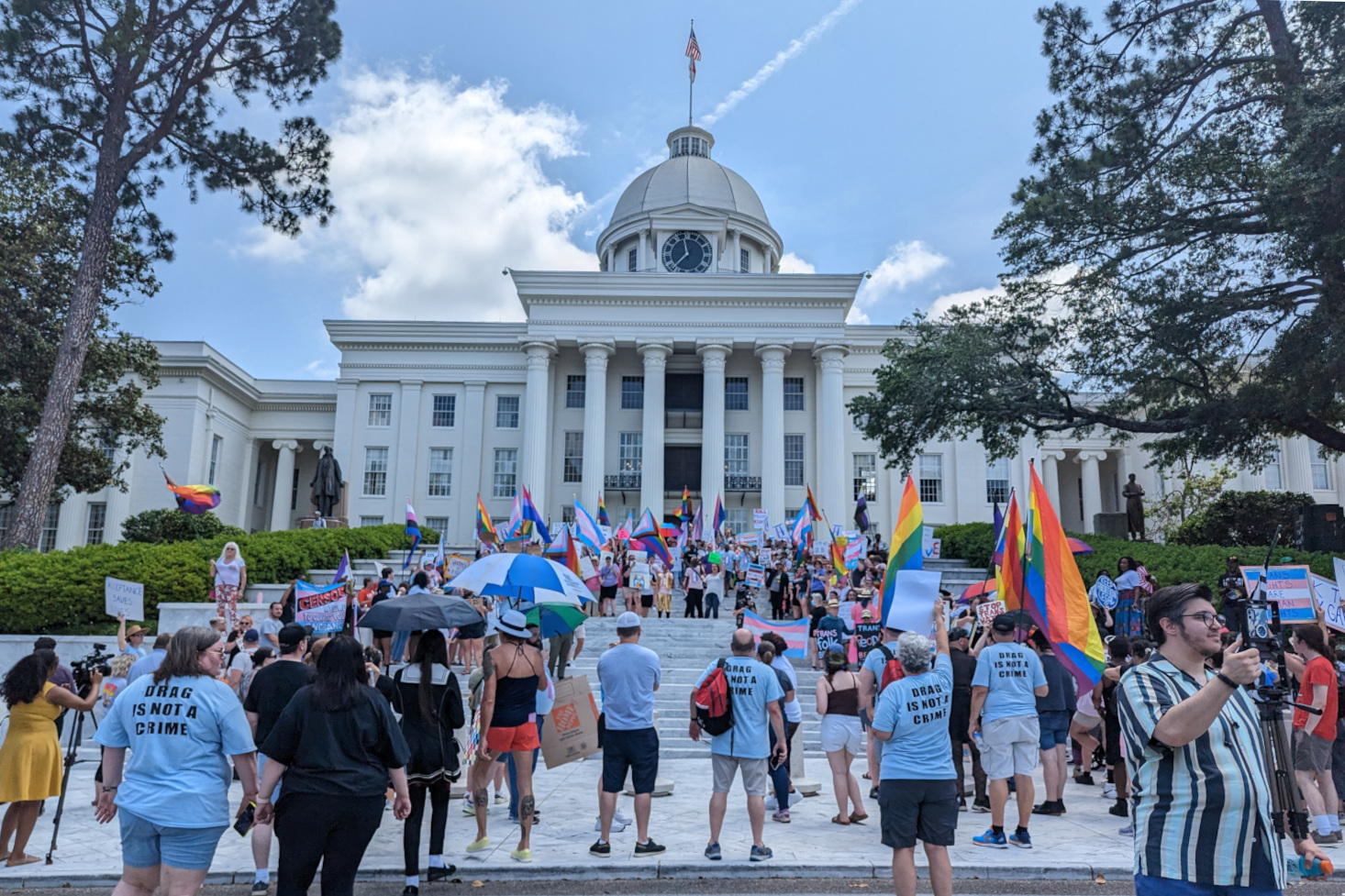
By Jemma Stephenson | MONTGOMERY, Ala. – A bill that would have expanded Alabama’s “Don’t Say Gay” law died on the final day of the 2024 regular session.
HB 130, sponsored by Rep. Mack Butler, R-Rainbow City, would have extended Alabama’s prohibition on discussion of sexual orientation and gender identity from kindergarten to fifth grade to kindergarten to eighth grade. It also would have banned flags or other insignia indicating gender identity or sexual orientation.
Butler said in a Friday phone interview that he didn’t know what the issues were in the final days of the session but said there was a filibuster in the Senate “which is not uncommon.”
The legislation was the latest in a years-long attempt by Alabama Republicans to push LGBTQ+ Alabamians out of public life and in some cases restrict their health care. In 2021, the Legislature passed a ban on transgender students playing high school sports and the original “Don’t Say Gay” law, tacked into a bill restricting bathroom use by transgender youth.
The following year, the Legislature banned puberty blockers and hormones for use in gender-affirming care for transgender youth. The Legislature last year expanded the transgender sports ban to college athletics.
Katie Glenn, a policy associate with Southern Poverty Law Center, which opposed the bill, said in a phone interview Friday that it could have had a chilling effect which, she said, was emerging in some areas of the state.
“That chilling effect is absolutely what is intended by bills like HB 130,” she said. “it’s not actually to punish people, although it can be used to do that. It’s to scare people, to scare administrators, staff, teachers and students into hiding who they are while they’re at school.”

Butler also said he was not sure why the bill began moving again near the end of the session but said that bills “deemed a little controversial” are sometimes pushed back due to the amount they can take to pass.
“They shut down the House and the Senate,” he said.
But Butler said he would bring the bill back next year. He said that he has not met any parents who want the topics discussed in schools and claimed that “there is a move across this nation to sexualize our children.”
“Our schools in Alabama aren’t performing well enough to be going away from academics,” he said.
Legislative questions

(Brian Lyman/Alabama Reflector)
The bill passed the House in late April and was in position for a final vote in the Senate. But Democrats repeatedly criticized the measure, and even some conservative Republicans had questions about its scope.
As originally filed, the bill would have extended the ban up to 12th grade. Butler described it in a House committee meeting as a measure to “purify” public schools, a statement he walked back after criticism from Rep. Barbara Drummond, D-Mobile. Drummond later amended the bill on the House floor to limit the grades to eighth grade.
In the Senate committee, senators had questions about the extent of the bill and potential constitutional violations, especially around the flag and insignia. One speaker suggested the bill was broad enough that it would ban rainbow stickers in parking lots. Sen. Larry Stutts, R-Tuscumbia, said he was “confused” after Butler said that parking lots were not part of school property. “The property is not the parking lot?” he asked.
“Well, we’re talking about the actual building,” said Butler.
The bill passed out of committee 5-2-2.
Butler said Friday that that concern is “ridiculous” and one of the committee members might have been having fun. He compared it to teachers being allowed to have political bumper stickers but not political signs in classrooms.
Glenn said the confusion could have contributed to the bill’s demise.
“There were lots of questions from legislators on both sides of the aisle,” she said.
She said the vague language bill does make it unclear what the impact of the bill would ultimately be.
Glenn said the bill eventually suffered from organizing from people in the state, as well as the work of Democratic lawmakers, especially in filibustering.
Carmarion D. Anderson-Harvey, Human Rights Campaign’s Alabama state director, said in a statement Friday that Alabama lawmakers should spend their time on other issues, saying that LGBTQ+ Alabamians would continue fighting “despite years of dehumanizing rhetoric and relentless attacks on our community’s existence.”
“Most Americans, in addition to Alabamians, see these bills for what they really are – disgraceful, MAGA-led attempts to recycle false and outdated tropes about LGBTQ+ identities,” the statement said. “Alabama has real issues facing education, voting rights, and criminal justice reform, and now it’s time that lawmakers turn their attention to those issues instead of wasting taxpayers’ money to demonize an entire community.”
“Don’t Say Gay” laws had spread around conservative states, though they have also brought litigation Florida, which passed a version of the bill in 2022, settled a lawsuit over it in March, according to the Associated Press.
******************************************************************************************

Jemma Stephenson covers education as a reporter for the Alabama Reflector. She previously worked at the Montgomery Advertiser and graduated from the Columbia University Graduate School of Journalism.
******************************************************************************************
The preceding article was previously published by the Alabama Reflector and is republished with permission.
The Alabama Reflector is an independent, nonprofit news outlet dedicated to covering state government and politics in the state of Alabama. Through daily coverage and investigative journalism, The Reflector covers decision makers in Montgomery; the issues affecting Alabamians, and potential ways to move our state forward.
We’re part of States Newsroom, the nation’s largest state-focused nonprofit news organization.
Alabama
Alabama lawmakers pass bill may lead to prosecutions of librarians
“This would open librarians and their staff in our most vulnerable libraries to criminal prosecution for books housed in the adult section”
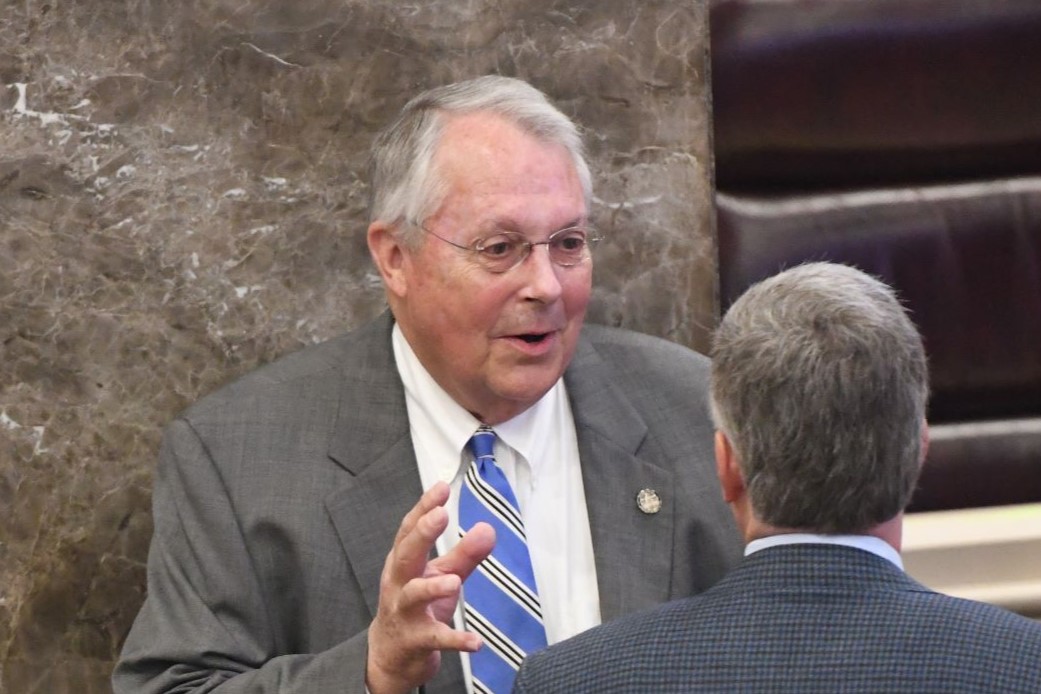
By Alander Rocha | MONTGOMERY, Ala. – The Alabama House of Representatives Thursday passed a bill that could lead to the arrest of librarians if a person accuses them of distributing obscene or harmful materials to minors or exposes them to people dressed in revealing clothing.
HB 385, sponsored by Rep. Arnold Mooney, R-Indian Springs, also expands the term “sexual conduct” in state law to include conduct that “knowingly exposes minors to persons who are dressed in sexually revealing, exaggerated, or provocative clothing or costumes, or are stripping, or engaged in lewd and lascivious dancing, presentations, or activities in K-12 public schools, public libraries, and other public places where minors are expected and are known to be present without parental consent.”
“The thing that I would like to point out is, this is an effort to protect children,” Mooney said. “It is not a Democrat bill. It’s not a Republican bill. It’s a people bill to try to protect children.”
The bill passed 72-28 along party line votes. A message seeking comment was left with the Alabama Library Association.
The legislation comes amid right-wing attacks on the content and leadership of libraries in Alabama and around the country, mostly around books with LGBTQ+ characters or themes. Mooney introduced a similar bill last year that explicitly banned drag show performances where children were present. The bill did not become law.
The bill as filed could have subjected librarians to a Class C felony, punishable by up to 10 years in prison, on a second or subsequent violation. A first offense would have been a misdemeanor, with a fine up to $10,000 and county jail or sentenced to hard labor for the county for not more than one year.

Rep. David Faulkner, R-Mountain Brook, offered an substitute to the bill he said was to “tighten up” the original bill and downgraded the criminal charges to a Class C misdemeanor, up to three months in jail or a $500 fine, for the first offense; a second offense would warrant a Class B misdemeanors, punishable by up to six months in jail; and a Class A misdemeanor, punishable by up to a year in jail, for the third and subsequent offense.
The substitute also provided notice requirements for those accused of misdemeanor, allowing up to seven days for materials to be removed. It also replaced the term “material” for “conduct” in the “sexual conduct” definition. The bill previously defined sexual conduct as any “sexual or gender oriented material that knowingly exposes minors.”
“We wanted to make sure that people were protected, our librarians were protected, that our K through 12 officials were protected, and that’s what we’ve tried to do in the sub, is strengthen that protection,” Faulkner said.

Democrats, however, said that the changes actually made it easier to subject librarians to criminal prosecution. Rep. Chris England, D-Tuscaloosa, said that lawmakers need to have “an actual class on what criminal law does, what intent is and the process.”
By reducing the felony charges to misdemeanors, England said, the bill would make it easier for librarians to be arrested via a warrant. A warrant clerk can sign a warrant “on the spot right there” without proper due process.
“In a situation where you have to have a warrant — that’s for felonies — it actually has to be investigated,” England said.
He said that the bill only requires district attorneys get notice, and there is no standard for what the notice is supposed to say, or requirement that the district attorney acknowledge the notice.
“This basically gives one person the ability to have a librarian arrested, as long as they can convince a warrant clerk that they’ve given notice and material is obscene. Does that make you comfortable?” England asked.
Rep. Neil Rafferty, D-Birmingham, said he was concerned that people will abuse the definitions provided in the bill and asked if there would be an appeals process in case a person is harassed based on the bill’s language.
“I’m talking about people abusing this definition that we have in here in order to target and harass people, who might be dressed up for a Halloween costume, or dressed up, like I said, in just the warmer months, wearing a sundress,” Rafferty said.
Faulkner maintained that there would still be seven days for the person to remove or change material or conduct in question. Rafferty questioned whether it is a good idea to bring people into the criminal justice system to resolve civil matters.
“I do still have some serious problems with this because I feel like this is a violation of First Amendment, I feel like is easily going to be abused, and we will be dealing with unintended consequences of it,” Rafferty said.
Rep. Danny Garrett, R-Trussville, said the bill was needed because “we woke up one day and things changed.”
Garrett cited the American Library Association adopting a user privacy policy stating children and young adults have the “right to receive information through the library in print, sound, images, data, social media, online applications, games, technologies, programming, and other formats.”
“I haven’t talked to anybody and anybody who believes that, but that was the national policy, and that began to drive a lot of things that just popped up that people didn’t understand. I don’t think the local libraries necessarily embraced that, but it just happens,” Garrett said.
Rep. A.J. McCampbell, D-Linden, said that while they may not want children to be exposed to the material in question, the “real world is full of a whole lot of stuff that we don’t want our children exposed to.” He said that he was exposed to a lot growing up, and the things he learned that was “lewd and not right” were not learned in a library.
“When we are trying to dictate by precluding what a person may learn about, then we limit their ability to operate in a society they actually live in,” McCampbell said.
Read Freely Alabama, an volunteer group opposing censorship in local libraries, said in a statement that even with the changes, the bill still “criminalizes normal library practices and subverts already established reconsideration procedures,” even after changes. The group said the bill would allow anyone to make a claim based on subjective personal beliefs.
“This would open librarians and their staff in our most vulnerable libraries to criminal prosecution for books housed in the adult section, giving them 7 days to ban these books from their libraries or be charged,” the statement read.
Craig Scott, president of the Alabama Library Association, said in a statement that despite the changes, librarians could still be penalized or arrested by “prosecutors eager to follow the demands of Alabama Republican Chair John Wahl, an Alabama Public Library Service Board member, who’s willing to jail librarians for having books he considers unacceptable.”
“This bill is government overreach, robs parents of their rights, and would have a chilling effect on free speech by potentially incarcerating librarians because particular books are available, including even the Bible,” Scott wrote.
The bill moves to the Senate for consideration.
******************************************************************************************

Alander Rocha is a journalist based in Montgomery, and he reports on government, policy and healthcare. He previously worked for KFF Health News and the Red & Black, Georgia’s student newspaper. He is a Tulane and Georgia alumnus with a two-year stint in the U.S. Peace Corps.
******************************************************************************************
The preceding article was previously published by the Alabama Reflector and is republished with permission.
The Alabama Reflector is an independent, nonprofit news outlet dedicated to covering state government and politics in the state of Alabama. Through daily coverage and investigative journalism, The Reflector covers decision makers in Montgomery; the issues affecting Alabamians, and potential ways to move our state forward.
We’re part of States Newsroom, the nation’s largest state-focused nonprofit news organization.
Alabama
Alabama House committee approves ‘Don’t Say Gay’ bill expansion
Expands limitations on teachers addressing sexual orientation & gender identity from K-5 to kindergarten through twelfth grade
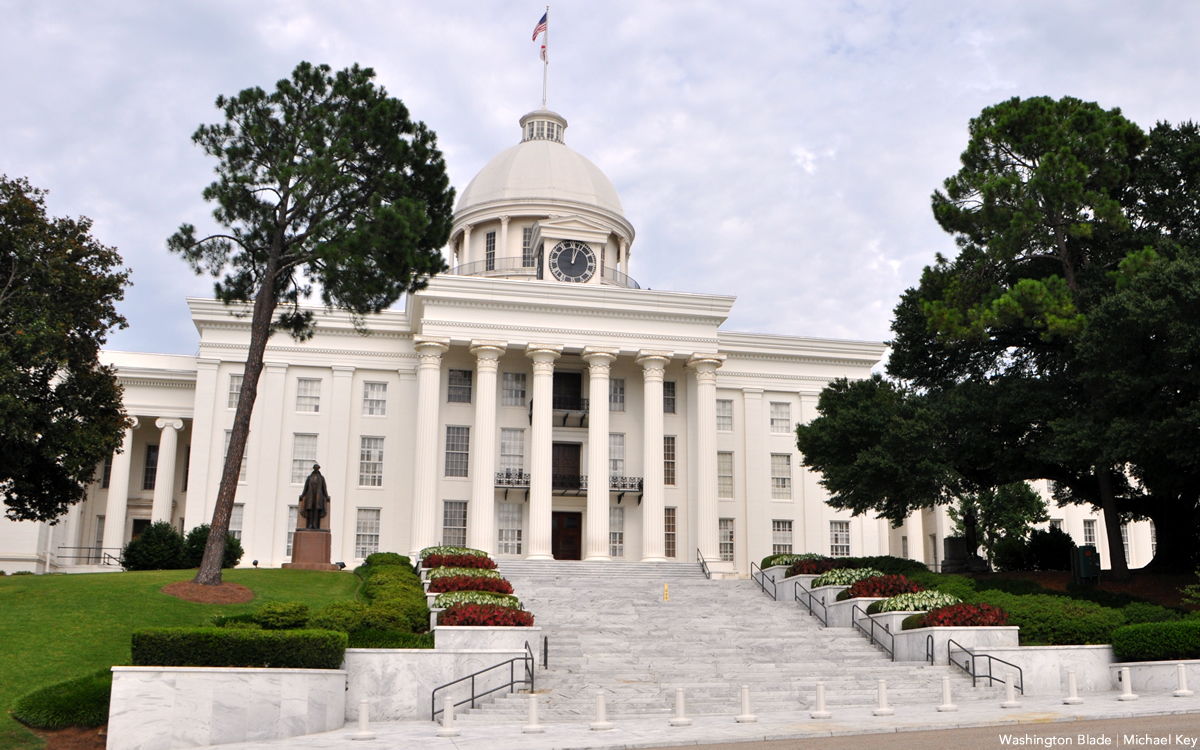
By Jemma Stephenson | MONTGOMERY, Ala. – The Alabama House Education Policy Committee Wednesday approved an expansion of Alabama’s “Don’t Say Gay” bill despite pushback from some Democrats.
HB 130, sponsored by Mack Butler, R-Rainbow City, would expand the limitations on teachers addressing sexual orientation and gender identity from kindergarten through fifth grade to kindergarten through twelfth grade. An amendment was added that would also limit pride flags in the classroom.
The bill passed on a voice vote.
The committee also approved HB 195 sponsored by Rep. Susan DuBose, R-Hoover, that would require any sexual education in public schools to exclusively teach “sexual risk avoidance,” or abstinence. The bill passed on a voice vote after little discussion.
A committee amendment was added to remove language around a cause for action: “the parent or guardian of any student at a public K-12 school may bring a cause of action against any local board of education and any of its agents or employees, including, but not limited to, a superintendent, principal, assistant principal, teacher, or teacher’s aide to seek compliance with this section in a court of competent jurisdiction. Available remedies include injunctive relief, attorney fees, and litigation expenses, including witness fees and court costs.”
The original “Don’t Say Gay” law was added to a bathroom bill on the last day of the 2022 regular session. Florida settled a lawsuit over its “Don’t Say Gay” law earlier this month which said that teachers are allowed to mark their classrooms as LGBTQ+ safe spaces and programs aimed at preventing LGBTQ+ bullying can return, according to the Associated Press.
The Alabama legislation states that an “individual or group of individuals providing classroom instruction to students in kindergarten through the twelfth grade at a public K-12 school shall not engage in classroom discussion or provide classroom instruction regarding sexual orientation or gender identity.”
Rep. Mark Gidley, R-Hokes Bluff, brought two amendments Wednesday. The first said that no teacher or employee in a public school “may display a flag or other insignia, relating to or representing sexual orientation or gender identity in a classroom or on the property of a public K-12 school.”
Rep. Barbara Drummond, D-Mobile, asked who was going to police it. Butler said there were no penalties built in and that the school would.
“I think we all know what we’re getting at is some schools that are displaying the pride flag, some of the educators,” he said.
House Minority Leader Anthony Daniels, D-Huntsville, asked about the moms that Butler said brought him the bill, and no moms had approached him about a flag. Daniels asked if Butler had any other context on the flag, which Butler said he did not.
Daniels said the Legislature needs to stop addressing isolated incidents when there’s a local school board.
“Just today, when I was in Rep. Gidley’s office, we had a lady sharing with us about her grandson that was literally indoctrinated and became a girl, that he’s identifying as a girl and she felt like it was the teacher that did it and that was just today,” said Butler.
“Man, give me a break,” said Daniels. “We’ll talk offline because what I want to say here, there are too many cameras in here for me to say what I want to say, so we’ll talk offline.”
The amendment was adopted on a voice vote.
Gidley proposed a second amendment that would extend the “Don’t Say Gay” bill to Space Camp in northern Alabama, by including the Alabama Space Science Exhibit Commission in the bill. Members of Alabama’s congressional delegation targeted a transgender individual for being employed there.
Rep. Terri Collins, R-Decatur, the chair of the committee, said that she had concerns about the amendment as it would be calling out one institution.
“When we have camps and things all over, I will say that,” she said.
Drummond echoed Collins’ concerns and asked when it would stop.
“Will we just patchwork and keep doing it over and over again– and I’m using your word from the last public hearing– until you purify the state of Alabama?” she said. “This bill is going to run people away rather than bring people to Alabama and I just don’t understand why you are picking on this one organization. Are you going to take a scope and go throughout the state of Alabama and any of these organizations anywhere that you may see somebody who may gender identity you will then come back and say, ‘Okay, we need to pass another bill?’”
Butler said he hoped this bill would send the message that instructors should not teach sexual orientation and gender identity.
“But what does that person, you talked about the person turning the child into being a girl I believe it was,” said Drummond. “What if that is who she is and mentally that’s who she is? What is she to do? Is she to cease from existing?”
“Absolutely not, we’re to –” said Butler.
“Well then, I mean, what kind of message are we sending here?” she said.
Butler said he thinks they have been sending the wrong message. He said that transgender identity used to be perceived as a “mental disorder.”
Transgender medical care is individualized to each patient. While it used to be treated as a pathology, care is now provided on a spectrum, which may or may not include surgery or medicine. Gender dysphoria can cause distress, such as depression or anxiety, in individuals.
Daniels returned to the question of consequences for the bill, which Butler said there were none.
Butler said that he is not sure they stop anything, and people still rob banks. Daniels said that a caught bank robber has consequences.
Daniels asked why they were targeting only public schools and not all schools.
“I will accept that amendment, that’s a friendly amendment,” said Butler.
Daniels said that he is not offering the amendment.
Butler said that he has not heard any parent who wants this instruction and compared it to a teacher “teaching whatever religion.”
“People would have a come apart,” he said.
Daniels again asked about expanding it to all schools, and Butler repeated that he would accept the amendment.
“I don’t like the bill, period,” Daniels said.
Butler said he would look into that if it made it to the floor.
“I just want us to start thinking about ways to solve problems instead of creating additional divisions and isolating groups that are not as in the appearance of being as strong as others,” Daniels said. “It’s almost like bullying, to be honest with you. We’re bullying a certain class or group of people because they don’t have the representation to fight back.”
Both bills move to the full House of Representatives.
******************************************************************************************

Jemma Stephenson covers education as a reporter for the Alabama Reflector. She previously worked at the Montgomery Advertiser and graduated from the Columbia University Graduate School of Journalism.
******************************************************************************************
The preceding article was previously published by the Alabama Reflector and is republished with permission.
The Alabama Reflector is an independent, nonprofit news outlet dedicated to covering state government and politics in the state of Alabama. Through daily coverage and investigative journalism, The Reflector covers decision makers in Montgomery; the issues affecting Alabamians, and potential ways to move our state forward.
We’re part of States Newsroom, the nation’s largest state-focused nonprofit news organization.
Alabama
Anti-LGBTQ+ hate proves fatal, Baptist pastor dies by suicide
He killed himself after a far-right publication published photos and a story detailing the pastor-mayor’s private and secret life

SMITHS STATION, Ala. – F.L. “Bubba” Copeland was the duly elected mayor of Smiths Station, a town in Lee County, Alabama. It is part of the neighboring Columbus, Georgia metropolitan area. Copeland was also pastor of the First Baptist Church of Phenix City, which sits across the Chattahoochee River from Columbus.
By all accounts “Bubba,” as he was known in this small town of 6,756, was very popular, respected and beloved but early Friday evening, Nov. 3, he killed himself after a far-right publication published photos and a story detailing the pastor-mayor’s private and secret life.
Lee County Sheriff Jay Jones told media outlets that Copeland, a married father of three, “took his own life” around 5 p.m. According to the Sheriff, at around 4:15 p.m. CT, his deputies received information regarding the mayor needing a possible welfare check. Deputies found Copeland in the Beulah community area, where a slow pursuit began. Officials say the mayor turned onto Lee Road and pulled over. When he exited his vehicle, he produced a handgun and used it to take his own life.
The tragic death of the pastor-mayor stemmed from an article published by writer Craig Monger on the far-right wing media website 1819 News earlier in the week. 1819 News is a website that was once owned by the Alabama Policy Institute, a conservative group that is staunchly anti-LGBTQ+ and has filed multiple lawsuits against same-sex marriage.
Monger’s article disclosed Copeland’s secret online social media alter persona Brittini Blaire Summerlin, which listed Copeland self labeled as a ‘transitioning’ transgender woman. Monger goes on to publish screenshots of other photos and entries including some photos that 1819 News alerted readers with the caution: “WARNING: EXPLICIT PHOTOS.”
Copeland told Monger that he could confirm that he operated the various social media accounts and it was him who was featured in the photos. He claimed it was only a means of “getting rid of stress” and called the postings a “hobby” and a “fantasy.” The pastor-mayor said his erotica and trans persona was “purely fiction.”
According to Monger, after the interview, Copeland promptly deleted the accounts and asked them not to be made public due to his family and position as a Baptist pastor.
The day the article was published online, that evening Copeland delivered a sermon from the pulpit at his church telling his congregation:
“The article is not who or what I am….I apologize for any embarrassment caused by my private and personal life that has become public. This will not cause my life to change. This will not waiver my devotion to my family, serving my city, serving my church,” Copeland said.
He then read from the 23rd Psalm telling parishioners, “God will always protect you, take care of you,” Copeland said. “He will see you through anything, absolutely anything.”
Columbus ABC News affiliate WTVM 9 reported that reacting to the news of Copeland’s suicide, some people in the community said they were saddened by the news in so many ways.
“Things that were obviously private came out publicly and quite frankly unexpectedly. I can’t imagine, again, what that must be like for the mayor, his family and for anyone who’s been affected by this,” said Kris Patton. “Probably the most heart-wrenching thing about it is the effect that it is going to be on the community.”
“What he did in his personal life… his business, you know,” said Jennifer Schmitt.
Reaction from the Christian anti-LGBTQ+ right groups, however, was unsympathetic.
“We have become aware of the alleged unbiblical behavior related to the pastor of the First Baptist Church of Phenix City. We are praying for the leaders of the church family as they seek to determine the truth concerning these accusations. As the people of God, we pray for the pastor and his family as well. We are in consultation with the Russell Baptist Association’s leadership as they endeavor to assist the First Baptist family during this critical time of need,” the Alabama Baptist State Convention and Alabama Baptist State Board of Missions said in a statement to the Alabama Baptist, a news outlet for the state’s Baptist churches.
The former Phenix City Schools Superintendent Larry DiChiara angrily posted on his personal Facebook page:
“I am so angry right now and heartbroken. I witnessed a good man be publicly ridiculed and crucified over the last few days to the point that he just took his own life today. I just want to ask you people who thought it humorous to publicly ridicule him, “Are you happy now?” What crime did he commit?”
Prominent South Florida pastor and biblical scholar Kevin M. Young posted on X-formerly Twitter: “This pastor committed suicide not too far from here today. We must end LGBTQ+ persecution.”
Hemant Mehta, who authors the progressive website the Friendly Atheist, researched Copeland prior to learning of his suicide on Friday. Mehta noted; “There’s a story making the rounds about an Alabama preacher/mayor who secretly dresses in drag and adopts the persona of a trans woman on social media. The problem? It’s not clear he’s a hypocrite. If he’s not a bigot, why is he being outed?”
Mehta and others who dug into Copeland’s background found absolutely no evidence of anti-LGBTQ+ animus from the pastor-mayor’s social media and other sources. Mehta writes:
As far as I can tell, there’s no evidence that Copeland himself has ever participated in those right-wing attacks. I have yet to see a sermon clip where he rails against drag queens or trans people. I can’t find a single policy he’s promoted as mayor that would make life worse for the LGBTQ community. (All of those things may exist, to be clear, but I haven’t found them yet.)
The article in 1819 News never once mentions a single example of his hypocrisy… which seems like an odd omission given the way the article is framed. If this was a slam-dunk story, all those images of Copeland dressing as a woman would be followed by screenshots of, say, his anti-LGBTQ social media posts. But you won’t find anything like that in the article.
If there’s no proof of hypocrisy, then why the hell is this a story?!
Alabama
Grieving Black mom Camika Shelby inspires hope
“Nigel was my 15-year-old son. He was full of light, full of joy. Losing him—it’s a feeling that still is sometimes too hard to bear”
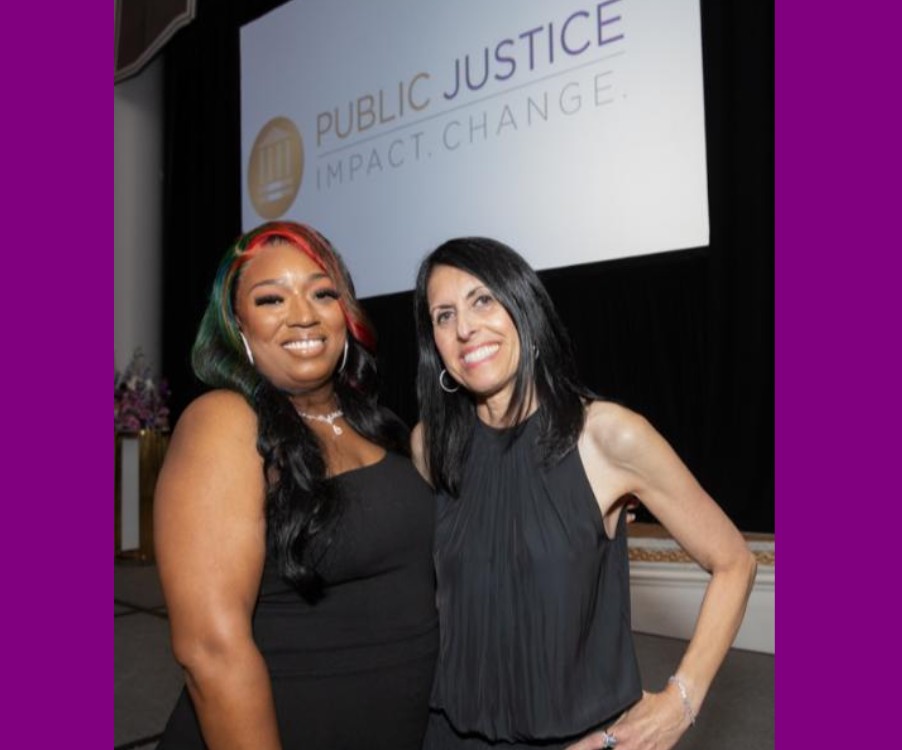
HUNTSVILLE, Ala. – Camika Shelby wiped away tears listening to Adele Kimmel, Director of Public Justice’s Students’ Civil Rights Project, describe the grieving mother as her “shero” for fighting the “hateful, bigoted political ideology [that] has taken root in our country and is fighting for domination.”
Camika lost her beloved Black gay 15-year-old son Nigel to suicide on April 18, 2019, after the teen suffered severe, unchecked anti-gay harassment and race discrimination in his freshman year at Alabama’s Huntsville High School. Nigel’s parents and estate subsequently filed a federal lawsuit in 2021 against the Huntsville City Board of Education and school administrator Jo Stafford, alleging that they violated Nigel’s civil and constitutional rights.
According to the family’s legal complaint, Stafford, the school’s lead administrator for the freshman class, knew that Nigel’s classmates were harassing him, telling him to kill himself because he was gay. Instead of protecting him, Stafford allegedly blamed Nigel for the harassment he was experiencing and told Nigel and a classmate to dance to “Black people’s music” to make Nigel feel better. She never told Camika about the anti-gay harassment Nigel suffered at school.
Last March, Camika reached a settlement that requires the Huntsville City Board of Education to adopt and implement policy and training changes to better protect LGBTQ+ students.
“There is no amount of money in the world that could ever replace Nigel,” Camika said after the settlement. “You can’t put a price on a child. This lawsuit was about bringing change. It was about acknowledging that there needs to be change. It was about saving someone else’s child so that they don’t have to go through the horrible tragedy that I have. I hope this settlement will help bring about that change.”
Camika Shelby was the surprise guest at Public Justice’s 2023 Annual Gala & Awards in Philadelphia on July 17. “Nobody would have blamed Camika if in the days and weeks following the death of her son, she had chosen to seek privacy and grieve in solitude,” Camika’s attorney Adele Kimmel told the audience. “But she didn’t do that. Instead she stood up, she fought back, and she worked to hold the school district accountable.”
Kimmel also noted that Camika took action at a time when more than 400 anti-LGBTQ bills have been recently introduced in states around the country, in a place where one of the most anti-transgender legislative packages in history was just passed.
“I’m sorry about the tears,” Shelby told the Gala audience. “Nigel was my 15-year-old son. He was full of light, full of joy. He had to have been one of the funniest kids. Losing him—it’s a feeling that still is sometimes too hard to bear. But the day I laid my baby to rest, I promised that I wouldn’t stop fighting for him.”
The grieving mother’s gratitude was palpable.
“The work that you do is life-changing for a lot of us. In the beginning, it was really hard because I received so much backlash. There were times I didn’t think I was going to make it through,” Shelby continued. “But then I met a lady named Adele. All of that changed. From the moment I met her and the rest of the team, I knew that I’m going to be all right because they actually cared….
“This has been the longest road ever,” Camika said. “I’m honored to be standing here today to say I got through it. And because I got through it, it has opened so many doors for me to do so many things in honor of Nigel….I know that there are a lot of parents across the world who have lost a child or multiple children and we never even hear about it. So, the fact that my baby’s story touched so many people and has brought about so many great opportunities — I’m just thankful.”
Watch this short video to catch Camika Shelby’s full remarks to the Public Justice Gala audience:
Alabama
Angered by LGBTQ+ lecture, state GOP lawmakers threaten funds
Republican lawmakers say state-funded departments shouldn’t be talking about anything related to sexual orientation

MONTGOMERY, AL. – A contingent of Alabama Republican Senate lawmakers led by State Sen. Chris Elliott, are filing a bill that will divert $5 million in critical funds from the Alabama Department of Archives and History over its refusal to not hold a noontime lecture focused on LGBTQ+ history this past month in recognition of LGBTQ+ Pride Month.
“Invisible No More: Alabama’s LGBTQ+ History” was presented on June 15 by the Invisible Histories Project, a nonprofit research group that works to preserve and teach LGBTQ+ history in the South.
Elliott and ten other Republican lawmakers were angered by the presentation, saying it was inappropriate for a state agency to hold an event and that it pushed a liberal political agenda. He also stressed state-funded departments shouldn’t be talking about anything related to sexual orientation and sex.
According to AL.com, Elliot alleges that: “We’re not trying to blow up Archives and History or anything like that. I, and others, which has turned out to be quite a few co-sponsors so far, are trying to send a message. But at the same time Archives and History does some great work and we want to be cognizant of that as well.”
“They have drawn the attention of appropriators who are not pleased with the conversations they’re having,” Elliott said, adding; “This is the only tool we have left and these are topics that the people we represent are clearly aggravated with.”
Steve Murray, director of the Archives and History, said the presentation was not political.
“Not every program will be of interest to every Alabamian, but we strive to ensure that Alabamians will find somewhere in our offerings some historical content that is meaningful to them,” he said. “Our aim is neither indoctrination nor politicization.”
At the end of June, Republican Gov. Kay Ivey had announced a special session to create a new Congressional district map to comply with the June 8 ruling by the U.S. Supreme Court which ordered Alabama officials to redraw the state’s congressional map to allow an additional Black majority district to account for the fact that the state is 27% Black.
The Governor told lawmakers: “It is of the utmost importance that this special session only address the congressional map and nothing else. The task at hand is too urgent and too important,” according to the Alabama Political Reporter.
The special session began on July 17, with most eyes on the attempt to create a new Congressional district map that will comply with the High Court’s order and must be approved by July 21 for the courts, or else a special master may be called in to draw the maps.
But the Alabama Political Reporter noted, that isn’t stopping Elliot from moving forward with a bill to defund the state archives.
“It will require (a two-thirds vote) but I don’t believe that will be a problem,” he said. “I’ve successfully worked bills like this before in a special session like the vaccine exemption legislation.”
Related:
Food for Thought: “Invisible No More: Alabama’s LGBTQ+ History”
Alabama
Alabama extends ban on trans female athletes to universities
“Look, if you are a biological male, you are not going to be competing in women’s and girls’ sports in Alabama”
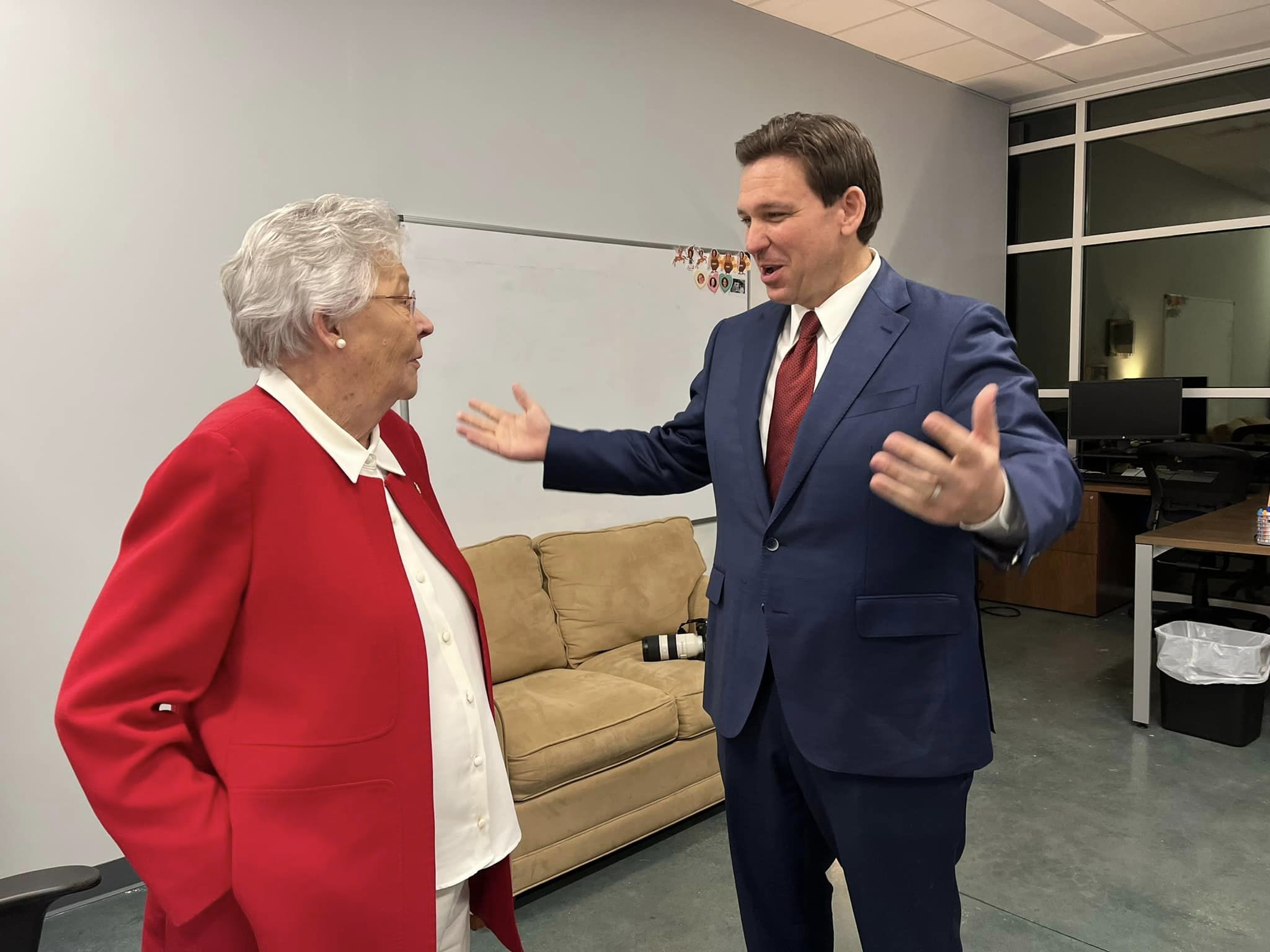
MONTGOMERY – Governor Kay Ivey on Tuesday signed House Bill 261 which limits transgender students to playing sports in public colleges and universities only with “their biological sex assigned at birth.”
“Look, if you are a biological male, you are not going to be competing in women’s and girls’ sports in Alabama. It’s about fairness, plain and simple,” said Governor Ivey in a statement released by her office.
House Bill 261 was approved 26-4 in the Alabama Senate and 83-5 in the House of Representatives. In the vote in the Alabama House over a dozen lawmakers abstained from the vote.
Ivey had previously signed legislation in 2021 banning trans female athletes from competing in K-12 girls sports. At the time she signed that bill the governor had noted that “Alabama remains committed to protecting female athletes at all levels and upholding the integrity of athletics.”
Carmarion D. Anderson-Harvey, Alabama state director of the Human Rights Campaign said the legislation is part of a “systematic attack against LGBTQ+ people” in Alabama and elsewhere.
“In just two years, [Ivey] and extremist lawmakers in Alabama have passed four anti-LGBTQ+ bills. From dictating what bathrooms we can use to blatantly ignoring the actual problems in women’s sports, these politicians are making Alabama an increasingly hostile place for transgender people and the LGBTQ+ community as a whole,” Anderson-Harvey said.
Alabama
Alabama GOP moves to ban public drag shows where kids are
“Now they are trying to stifle people’s creativity and stop people from being able to express themselves… when that’s their profession”
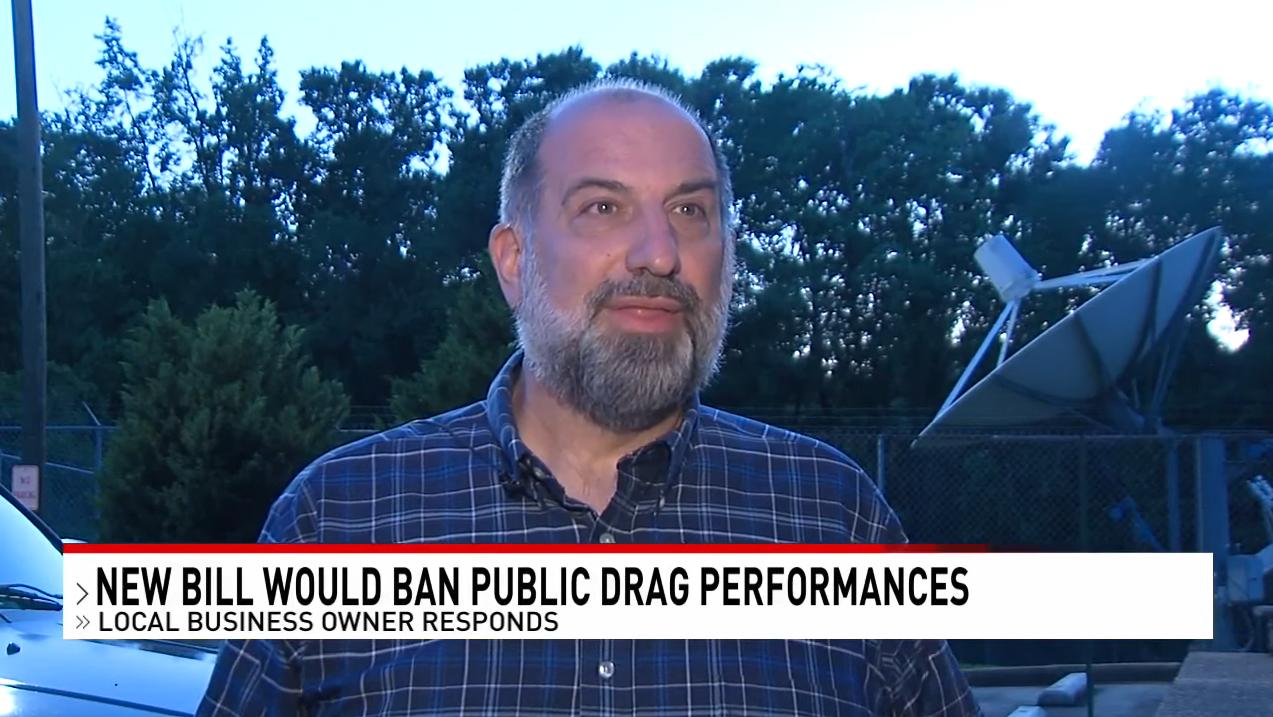
MONTGOMERY – Republican Rep. Arnold Mooney along with five other Republican lawmakers have introduced a measure targeting drag performances by expanding the definition of the state’s existing anti-obscenity laws to include prohibiting “male or female impersonators, commonly known as drag queens or drag kings.”
House Bill 401, would label drag performances as obscene and criminalize drag in K-12 public schools, public libraries, and in other public places where minors are present. If passed and signed into law by Republican Governor Kay Ivey, a new paragraph would be inserted into Alabama’s obscenity law that would now include the following as sexual conduct:
“Any sexual or gender oriented material that exposes minors to persons who are dressed in sexually revealing , exaggerated or provocative clothing or costumes, or are stripping or engaged in lewd and lascivious dancing, presentations, or activities, including but not limited to topless, go-go, or exotic dancers, or male of female impersonators, commonly known as drag queens and drag kings. This sexual conduct is prohibited in K-12 public schools, public libraries, and in other places where minors are present.”
In an interview with Mobile, Alabama NBC News affiliate WPMI 15, downtown Mobile LGBTQ bar owner Jerry Ehlen said:
“We are an entertainment business, we are in the entertainment district that Mobile fought for four years,” he says, “and now they are trying to stifle people’s creativity and stop people from being able to express themselves… when that’s their profession. For the most part, that’s how they make their living.”
Ehlen, who owns B-Bob’s, which is celebrating its 30th anniversary this year, pointed out to NBC 15 that the drag queens perform at the bar several nights every week. He acknowledge that the legislation would not criminalize drag performances inside his bar, he worries that the outcome of the law’s passage could stifle Mobile’s large gay community, especially during pride events.
“Mobile has had pride events ever since I can remember,” he says. “It’s always been family inclusive. It’s always been men and women, drag kings and drag queens in attendance, and there’s never been an issue.”
Republican legislators in 16 states have been considering restrictions on drag show performances in what critics say is a wave of anti-LBGTQ legislation. U. S. District Court Judge Thomas L. Parker of the U. S. District Court for the Western District of Tennessee ordered a temporary injunction halting a just enacted Tennessee law that criminalizes some drag performances, hours before it was set to take effect April 1.
A Shelby County-Memphis based LGBTQ theatre company, Friends of George’s, had sued the state of Tennessee, claiming the law unconstitutional under the First Amendment. In his 15 page order issued late Friday evening Parker wrote:
“If Tennessee wishes to exercise its police power in restricting speech it considers obscene, it must do so within the constraints and framework of the United States Constitution. […] The Court finds that, as it stands, the record here suggests that when the legislature passed this Statute, it missed the mark.”
Mobile bar owner concerned as Alabama lawmakers consider anti-drag bill:
Alabama
Alabama Governor forces head of Dept of Early Childhood Ed out
Governor Kay Ivey labeled it as promoting “woke” concepts & ordered ADECE to remove it from use in the state’s pre-K program
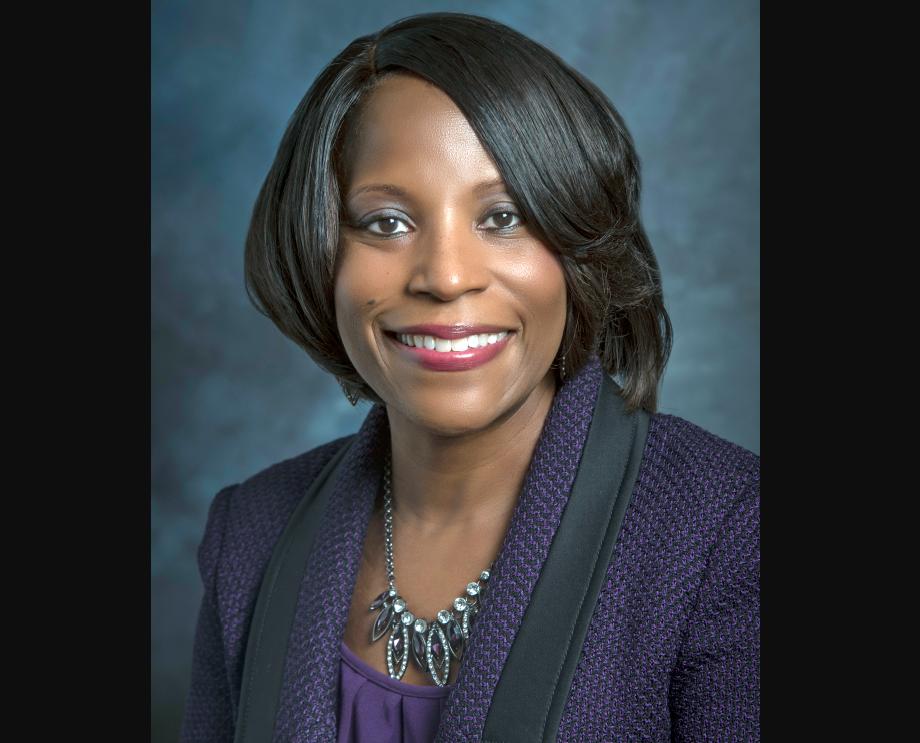
MONTGOMERY – A pre-K teacher’s resource book backed by the Secretary of the Alabama Department of Early Childhood Education angered Governor Kay Ivey who labeled it as promoting “woke” concepts and ordered ADECE Secretary Barbara Cooper to remove it from use in the state’s pre-K program.
Gina Maiola, communications director for the governor’s office, said Ivey had accepted Cooper’s resignation after Cooper refused to pull the book. The book that caused the controversy is the National Association for the Education of Young Children (NAEYC) Developmentally Appropriate Practice Book, 4th Edition. It focuses on teaching children up to age of 8.
Cooper had reviewed and endorsed the book according to the NAEYC website:
“This work fully supports our practice in the field of early learning and care. Educators of children from birth to age 8 will use this information to learn applicable skills for teaching through developmentally appropriate practices that build brains during the critical first five years of life. —Barbara J. Cooper, Secretary, Alabama Department of Early Childhood Education”
The governor’s ire had been raised by issues addressed in the book such as LGBTQ+ equality, white privilege, and racism.
The Alabama Reflector, an independent, nonprofit news outlet dedicated to covering state government and politics, did a review of the book, running over 800 pages in electronic form, found it focused on encouraging teachers to be aware of inequities, implicit bias and the diverse backgrounds of children in order to be better teachers and create welcoming environments for their students.
The book does not appear to tell teachers to discuss these issues with children directly.
“Teachers need to be particularly aware of providing supporting environments and responses to children who are members of marginalized groups and those who have been targets of bias and stereotyping,” one passage said.
A 2022 University of California Irvine study found that roughly 30% of the gap between Black and white young adult criminal justice outcomes can be linked to school discipline. A 2021 study from the American Psychological Association found 26% of the Black students in their sample received a suspension for a minor infraction, while only 2% of the white kids did.
Discussions of white privilege were included in a passage that said equity allows students to reach full potential. A discussion of “structural racism” was included to tell early childhood educators to make their classrooms welcoming to all children.
“Early learning settings are one of the central handful of places where children begin to see how they are represented in society,” the book says. “Thus, the early learning setting can be a place of affirmation and healing for children, or it can be a space of trauma, terror and exclusion. Educators must work to ensure that it is the former.”
The book also reminds teachers that Black students suffer far severe disciplinary actions than white students, and encourages them to be mindful of those disparities. A 2021 study from the American Psychological Association found 26% of the Black students in their sample received a suspension for a minor infraction, while only 2% of the white kids did.
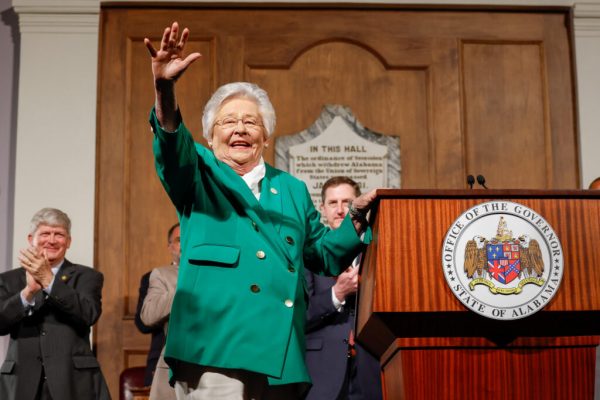
The book says this makes Black students “less likely to be actively involved in acquiring academic knowledge and skills, socializing with other children, and interacting with teachers.”
“As a result, far too many Black boys are denied genuine opportunities to achieve at high levels because of an unwelcoming classroom climate that contributes to inequity and negative assumptions based on race and gender,” the book says.
When LGBTQIA+ identities are mentioned, it is a reminder to teachers that families are different.
“Children from all families (e.g. single parent, grandparent-led, foster, LGBTQIA+) need to hear and see messages that promote equality, dignity and worth,” the book said. “Providing support and encouragement for personal expression and nongendered play – that is, honoring children’s ideas and choices with respect to gender roles and play – also teaches children acceptance and communicates their value within the classroom community.”
The book promotes teaching understanding.
“An affirmation of children’s identities is critical because children derive a sense of pride, self-worth, and consistency from their social and cultural identities,” the book said.“For example, including books that explore and celebrate different types of hair, different skin colors, and a range of abilities helps to shape a child’s positive self-identity, contributing to feelings of belonging and fostering a sense of caring for others.”
Cooper was appointed to the position in July 2020.
Dr. Jan Hume will serve as the interim secretary of the ADECE while Governor Ivey decides on a permanent secretary to lead the department in the immediate future.
The legislature is considering legislation by Rep. Ed Oliver that would ban state agencies from teaching and promoting divisive concepts.
Additional reporting by Jemma Stephenson, who covers education as a reporter for the Alabama Reflector.
-

 a&e features2 days ago
a&e features2 days agoVic Michaelis is a very important person
-
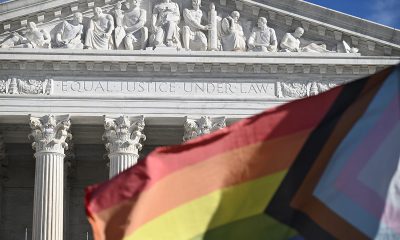
 U.S. Supreme Court4 days ago
U.S. Supreme Court4 days agoSupreme Court hears arguments in two critical cases on trans sports bans
-
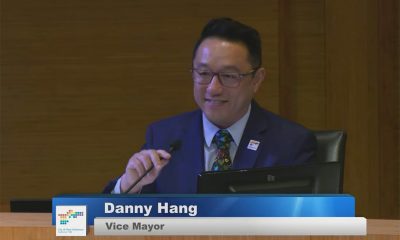
 West Hollywood4 days ago
West Hollywood4 days agoJohn Heilman and Danny Hang will serve as WeHo’s new Mayor and Vice Mayor
-

 Congress3 days ago
Congress3 days agoPadilla speaks at ‘ICE Out for Good’ protest in D.C.
-

 Golden Globe Awards5 days ago
Golden Globe Awards5 days agoWanda Sykes thanking the trans community, Hudson Williams and Connor Storrie presenting, and more Golden Globes highlights
-

 Health4 days ago
Health4 days agoPsychedelics, sobriety, and belonging
-

 Features3 days ago
Features3 days ago“We will get through all of this”: Culver City’s first LGBTQ+ Mayor discusses queer community and hope
-

 U.S. Supreme Court3 days ago
U.S. Supreme Court3 days agoCompeting rallies draw hundreds to Supreme Court
-

 Movies2 days ago
Movies2 days agoRise of Chalamet continues in ‘Marty Supreme’
-

 Dorian Film Awards3 days ago
Dorian Film Awards3 days ago‘One Battle After Another,’ ‘Sorry, Baby’ and ‘Sinners’ among 2026 Dorian Film Award nominees


